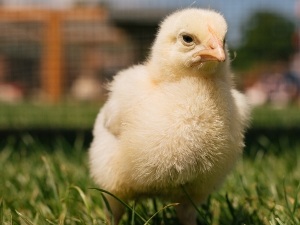
Cuddling with your baby chick is a sweet and lovely bonding experience that many chick owners love to do, but if your baby chick wants to be held all of the time this can become an issue.
This article looks into it
Table of Contents
Baby chick wants to be held all the time:
Babies love affection, this includes baby chicks, but unfortunately, you can’t always be there to hold your baby chick. This article is a guide on why the babies want this and what to do.
Your baby chick wants to be held:
If your baby chick can’t seem to be on its own without you holding it then this bird is trying to signal that it wants you around at all times.
The bird will chip and even scream for attention and will only stop when you hold the bird
The birds are likely doing this because they have imprinted on you. Imprinting happens in the early days of the chick’s life. Imprinting means that the chick has attached itself to you and sees you as its mother.
Chicks will imprint on the first moving things that they find, they do this so they know who to follow when looking for food and water, and for protection.
Imprinting not only helps the baby chicks know who to eat from and follow around, it is also a way for baby birds to learn how adult birds act and how they should act in the future.
If the bird imprinted on you then this can cause issues as the bird won’t learn how to be an adult chicken through you
What to do:
You’d need to introduce the baby bird to members of their species as soon as possible.
Leave the bird with members of their own species so they can interact and learn from the adult birds.
You can do this for short periods of time in the beginning to keep the bird from becoming anxious because it is away from you for too long.
You can increase how long you leave the bird with its flockmates for until the bird gets used to being around its flockmates. After this, the bird can be left with its flock at all times.
In future, when feeding a newly hatched bird, make sure to avoid close visual contact with the bird, rather feed the bird behind a screen or out of sight so the bird doesn’t see you as its mother.
If you enjoyed this article then you may also be interested in other bird related articles. Here are some articles that you may be interested in: Baby Chick Looks Wet, White Spots On Cockatiel Beak, Baby Chick Screaming, Baby Chick Distress Call, Chicken Stuck On Back, Red Rash On Chickens Skin, Chickens With Red Skin, Baby Chick Laying Down With Wing Out, Baby Chick Won’t Walk Or Open Eyes?


